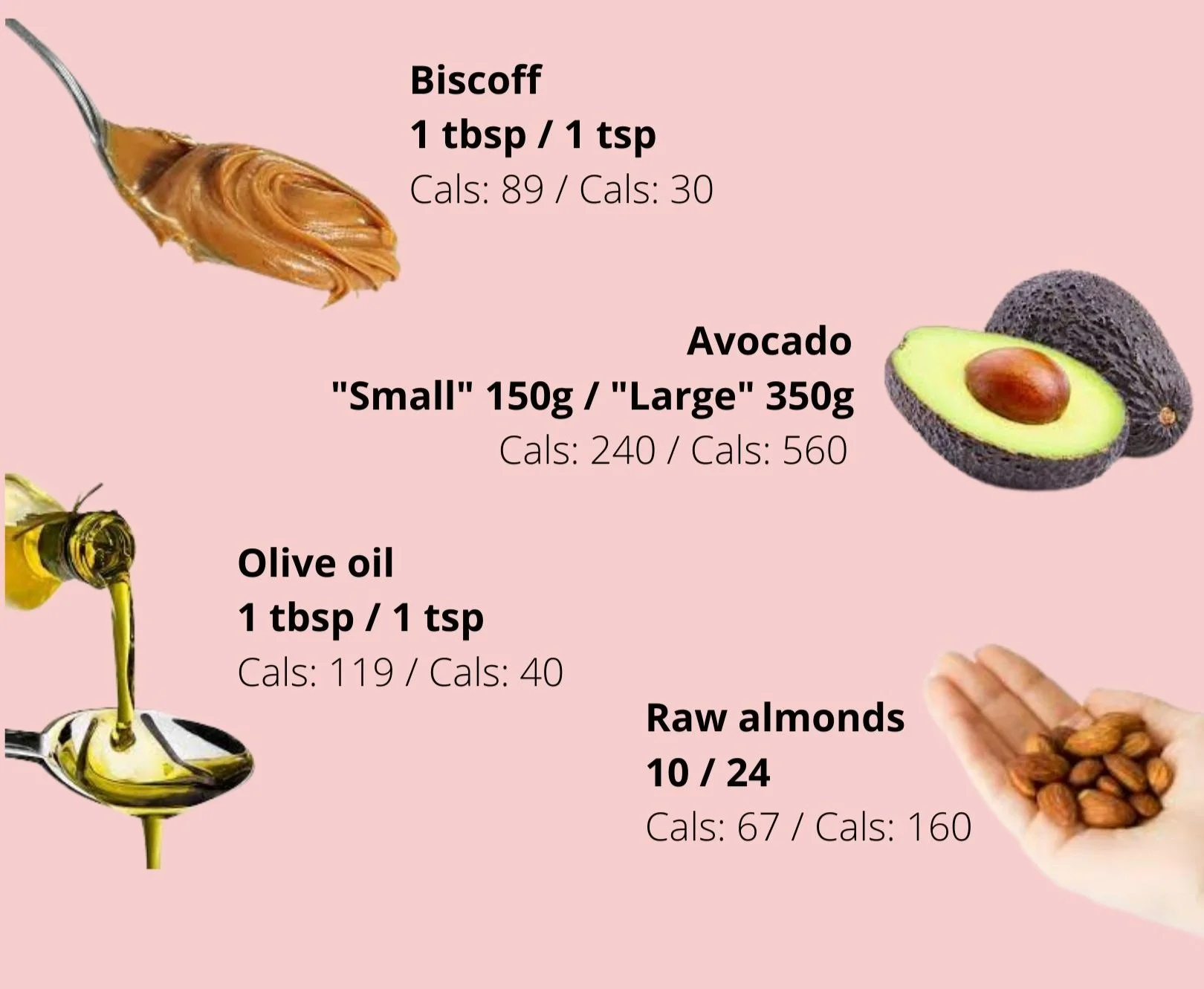Why weighing matters more than you think
When it comes to our daily meals and snacks, it's easy to fall into the trap of eyeballing portions.
Weighing and tracking food may not be for everyone, but here's the catch — those seemingly innocent handfuls of nuts or generous drizzles of olive oil can stack up more calories than we imagine!
When you are starting out, weighing and calorie counting provides a great foundation and understanding about the roles each food plays, as well as an awareness of what a portion looks like and how much we’re REALLY eating in a day.
When we are eyeballing, you can see how quickly what we deem a “handful” of nuts or an extra splash of oil can contribute to your daily calorie allowance.
This becomes important when you are moving toward a health goal and wanting to gain an understanding of how you can develop better habits and portion control.
Weighing our food takes away any of that guesswork, helps us to stop labelling food as good or bad, and helps us make informed decisions.
For example, if weight loss is your goal, you may opt for using an oil spray (1.5g = 13 calories) as opposed to olive oil on the pan.
Or you may begin to consider when you’re saying, “I’m using a teaspoon…”
What does a teaspoon actually look like – is it heaped, half, shallow, overflowing… there are many variations of what we consider a teaspoon – looking at you, Biscoff and hello to zero self-control.
It's not about restricting or creating a stressful relationship with food; it's about awareness and control. Tracking your intake gives a solid foundation, helping us understand portions and the roles each food plays in our diet.
As you start to become more familiar and more educated, you’ll start to make and shape your decisions with a different lens where you no longer need to rely on the scale.
